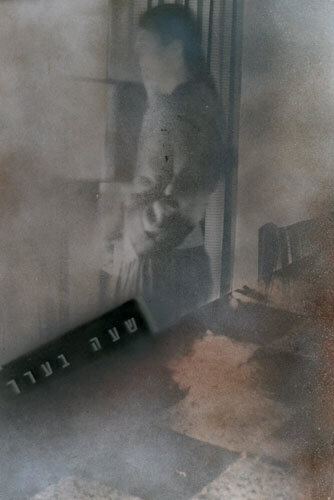The spectrum of Jewish identity has expanded into a menu of labels and sub-labels—from Ultra-Orthodox to Secular—that grows steadily towards the infinite. As Jews, we designate ourselves by hyphens and slashes, continually suspicious of language’s stability. Our crisis as postmodern Jews, who fashion identities from the uncertain convictions of our heritages, is not unlike that of post-modern poets who pick, invent, or recreate the perfect words to make a poem work.
So, a panel discussion entitled “Secular Jewish Culture/Radical Poetic Practice” seemed a promising, if not loaded, juxtaposition. Charles Bernstein, the postmodern poet who organized this panel, assembled an esteemed group of writers and critics, featuring Paul Auster, Marjorie Perloff, Kathryn Hallerstein, Jerome Rothenberg, and Stephen Paul Miller, The panel was held last September, at the Center for Jewish History, and I went with a keen sense of interest.
 Radical poetics refers to a stream in twentieth-century poetry movements that is considered post-modern, avant-garde, or innovative. The Language poetry movement, for example, beginning in the 1970s, uses form to subvert itself and draw attention to the constructedness of language. Poetics becomes not a set of rules but a blueprint of renewal, a call for constant reification. In a way, Language poetry does to twentieth-century poetry what Kabbalah did to medieval Judaism. Both literatures began as practices in elite circles and both have revolutionized their respective forms, exploding the nomos of the canon.
Radical poetics refers to a stream in twentieth-century poetry movements that is considered post-modern, avant-garde, or innovative. The Language poetry movement, for example, beginning in the 1970s, uses form to subvert itself and draw attention to the constructedness of language. Poetics becomes not a set of rules but a blueprint of renewal, a call for constant reification. In a way, Language poetry does to twentieth-century poetry what Kabbalah did to medieval Judaism. Both literatures began as practices in elite circles and both have revolutionized their respective forms, exploding the nomos of the canon.
Bernstein established the tone of discussion early on. His opening essay read much like a poem in itself. He appropriately syncopated the terms “ambiguity” and “complexity” in a fashion that brought to mind both Gertrude Stein and Dustin Hoffman in Rainman, sounding something like “com-com-plex-complex-com-com-complexity” and “ambigu-am-am-bi-ambiguity.” A classic illustration of post-modern poetics, this is probably the most succinct description I have heard of contemporary Jewish culture.
Surprisingly, the discussion turned out to be much more traditional, and indeed somewhat conservative, returning to a reductive identification of the Jew as Other, and limiting Jewish writing to the sphere of the exilic experience. An audience member raised the question of whether it is possible to employ the exilic model after 1948. Our panelists seemed somewhat stumped by the audience member’s question. Hallerstein agreed with the question and mentioned the importance of Israeli poetry. Perhaps it was taken for granted that this discussion was highly biased towards American poetry, and that many secular Jewish-American poets do not even consider America exile.



Straight Eye for the Consumer Guy
Dan Friedman
I'll Say Goodbye and Let you Go
Abigail Pickus
Three Jewish Books on Sadness
Jay Michaelson
Sufganiyot
Rachel Barenblat
The Other Jews: Secularism, Kabbalah and Radical Poetics
Hila Ratzabi
A Jewish Masterpiece
David Zellnik
Archive
Our 580 Back Pages
Zeek in Print
Fall/Winter 2004 issue now on sale
About Zeek
Mailing List
Contact Us
Subscribe
Tech Support
Links
From previous issues:
Retrato de Familia
Bara Sapir
Harvard Death Fugue:
The Exploitation of Bruno Schultz
Prof. James Russell
Steel and Glass
Dan Friedman